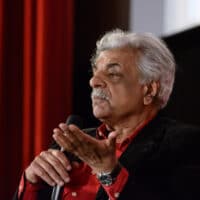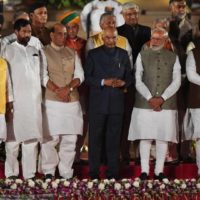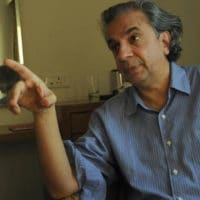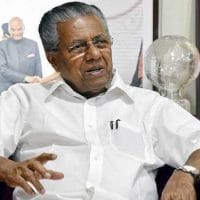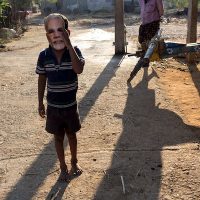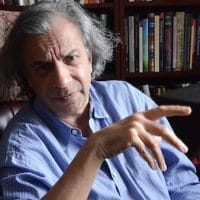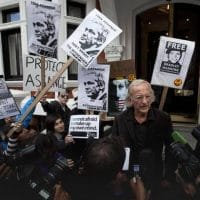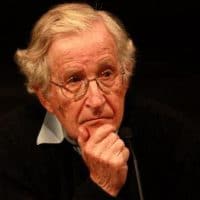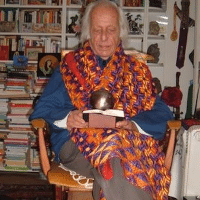-
Tariq Ali: ‘Democracy is largely a set of rituals now’
“There is no socialist blueprint. If you think there is a socialist blueprint, then you will only be a utopian. The formation of economic policies has to be done with the collaboration of those on whose behalf you are going to change structures.”
-
‘The invasion of Afghanistan was a fraud’: an interview with John Pilger
The Taliban were a convenient target to satisfy a political lust for revenge for 9/11.
-
Rob Wallace on the political economy of pandemics
Jair Bolsonaro, Donald Trump, Boris Johnson and such leaders across the world are malicious miscreants, convening necropolitical death cults. But the alternatives, also tied to capitalist sociopathy, are only a little bit better. Our “progressives” worship at the altar of the circuits of capital.
-
The pandemic has only exposed the suicidal tendencies of capitalism: Noam Chomsky
‘Another, probably more severe pandemic has been predicted. Scientists know how to prepare, but someone must act. If we choose not to learn the lessons that are right before our eyes, the consequences will be dire.”
-
A conversation with Aijaz Ahmad: ‘The state is taken over from within’
Aijaz Ahmad argues that the Rashtriya Swayamsewak Sangh (RSS) and its fronts, including the Bharatiya Janata Party (BJP), display distinct fascistic characteristics, but the Indian state continues to live by the liberal playbook, no matter how hollow the Indian liberal institutions may have become. He anchors this proposition in a distinctive theoretical position.
-
‘In India, it’s pathological authoritarianism’
That raises a whole range of very familiar and long-standing issues that have afflicted the Left, leading to debates in India (and no doubt in other places as well) between the organised Left and what has come to be called the “ultra-Left” and the insurgent Left.
-
Capitalism, populism & crisis of liberalism
In this long interview with Jipson John and Jitheesh P.M., Akeel Bilgrami speaks at length on the concepts of populism, liberalism, fascism, postmodernism and post-truth.
-
Constitution is supreme and above all the customs and beliefs: Kerala CM Pinarayi Vijayan
In conversation with the Chief Minister who just completed 1,000 days in office
-
‘The neoliberal project is alive but has lost its legitimacy’: David Harvey
In an interview with The Wire, the well-known Marxist scholar talks about the surge of populist and right-wing politics and the future of neoliberalism, capitalism and technology.
-
Dossier 12: India’s Communists and the elections of 2019
Ahead of the 2019 elections in India—the largest exercise of electoral democracy in the world–Brinda Karat of the Communist Party of India (Marxist) discusses the current political context in the country and the left-led resistance to the deepening assault on basic human rights led by India’s right-wing.
-
Gandhi, Marx & the ideal of an ‘unalienated life’
In this in-depth interview, Akeel Bilgrami speaks on a wide range of issues of intellectual relevance and contemporary importance such as the relationship between Gandhi and Marx, issues of modernity, Chomsky’s philosophy, personal influences, academic philosophy in India, secularism, caste and current politics in India, Hindutva politics and the criminal threat of the present government, the Hindutva political challenge and ways of resistance, and the importance of Left politics.
-
New Cold War & looming threats
John Pilger, investigative journalist and documentary film-maker, talks about the U.S.’ aggression in the Asia-Pacific region and the decline of its global dominance and says that a “new Cold War beckons isolation for the U.S. and danger for the rest of us”.
-
‘Marx’s writing more relevant today than ever’
THE German political economist Wolfgang Streeck is one of the world’s leading critics of neoliberal capitalism. He received international attention for his essay “How will capitalism end?” written in 2014 for the New Left Review. The much-discussed essay was later republished in book form.
-
‘The growth of right-wing forces is ominous’
NOAM AVRAM CHOMSKY is one of the greatest intellectuals in modern times. For the past six decades Chomsky has remained an inspiration for millions of people around the world who fight oppression and injustice and strive for a better world.
-
Audacious movements have to start
The following is the second part of the interview with Samir Amin. The first part was published in the Frontline issue dated May 11, 2018.
-
There is a structural crisis of capitalism
In this in-depth interview conducted in Dakar, Samir Amin speaks on a wide range of topics: globalisation; generalised monopoly capital; the alarming growth of inequality; the role of the state in the neoliberal era; globalisation and delinking; capitalism and modernity; the return of fascism in the contemporary capitalist world, and more.
-
‘Socialism a necessity for human survival’
According to John Bellamy Foster, the world environmental crisis is a systemic crisis, a product of capitalism, and requires systemic changes in the capitalist system. He says that environmental sustainability is incompatible with capitalism.

